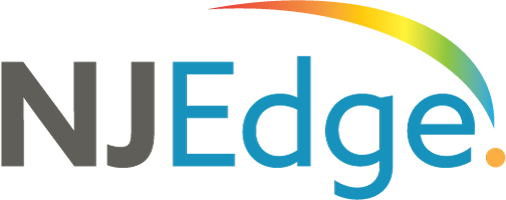The Trends at the NJEDge Conference 2018
There are so many posts I have the past few weeks about trend for education and technology, but one way of seeing what trends may emerge this year is by looking at the tracks, presentations and keynote speakers at EdTech conferences.
 I'll be moderating a track next week at NJEdge.Net's Annual Conference: NJEdgeCon2018 "DIGITAL LEADERSHIP & ENTERPRISE TRANSFORMATION" January 11 & 12, 2018 in New Jersey. My track is, naturally, Education and Technology which has presentations on best practices, innovations and the effectiveness associated with current LMS and online learning tools, effective infrastructure, resources, sustainability models and integrated assessment tools.
I'll be moderating a track next week at NJEdge.Net's Annual Conference: NJEdgeCon2018 "DIGITAL LEADERSHIP & ENTERPRISE TRANSFORMATION" January 11 & 12, 2018 in New Jersey. My track is, naturally, Education and Technology which has presentations on best practices, innovations and the effectiveness associated with current LMS and online learning tools, effective infrastructure, resources, sustainability models and integrated assessment tools.
But if you look at the other tracks offered, you can see that INFORMATION Technology outweighs instructional technology here. Other tracks at the conference are Big Data & Analytics, Networking & Data Security, Customer Support & Service Excellence, Aligning Business & Technology Strategies. and Transformation Products & Services.
Amber Mac (as in MacArthur) will talk about adaptation and the accelerating pace of corporate culture in the digital economy.
I have followed her career for a decade from her early tech TV and podcast venture to her current consulting business. She helps companies adapt to, anticipate, and capitalize on lightning-quick changes—from leadership to social media to the Internet of Things, from marketing to customer service to digital parenting and beyond. It’s not about innovation, she says; it’s about adaptation.
 When it comes to teachers and technologies, the battle cry of Virginia Tech professor John Boyer is embrace, not replace. In his talk, he presents his view that the best teachers will embrace technologies that help them better communicate with students, but do not fear because those technologies will never replace human to human interaction. But blending the best communicators with the best technology has to offer will produce some amazing and unpredictable opportunities!
When it comes to teachers and technologies, the battle cry of Virginia Tech professor John Boyer is embrace, not replace. In his talk, he presents his view that the best teachers will embrace technologies that help them better communicate with students, but do not fear because those technologies will never replace human to human interaction. But blending the best communicators with the best technology has to offer will produce some amazing and unpredictable opportunities!
 Wayne Brown, CEO and Founder of Center for Higher Ed CIO Studies (CHECS), will talk in his session on longitudinal higher education CIO research and the importance of technology leaders aligning technology innovations and initiatives with the needs of the higher education institution. His two-part survey methodology enables him to compare and contrast multiple perspectives about higher education technology leaders. The results provide essential information regarding the experiences and background an individual should possess to serve as a higher education CIO. In collaboration with NJEdge, Wayne will collect data from NJEdge higher education CIOs and will compare the national results with those of the NJ CIOs.
Wayne Brown, CEO and Founder of Center for Higher Ed CIO Studies (CHECS), will talk in his session on longitudinal higher education CIO research and the importance of technology leaders aligning technology innovations and initiatives with the needs of the higher education institution. His two-part survey methodology enables him to compare and contrast multiple perspectives about higher education technology leaders. The results provide essential information regarding the experiences and background an individual should possess to serve as a higher education CIO. In collaboration with NJEdge, Wayne will collect data from NJEdge higher education CIOs and will compare the national results with those of the NJ CIOs.
 Timothy Renick (a man of many titles: Vice President for Enrollment Management and Student Success, Vice Provost, and Professor of Religious Studies at Georgia State University) is talking about "Using Data and Analytics to Eliminate Achievement Gaps." The student-centered and analytics-informed programs at GSU has raised graduation rates by 22% and closed all achievement gaps based on race, ethnicity, and income-level. It now awards more bachelor’s degrees to African Americans than any other college or university in the nation. Through a discussion of innovations ranging from chatbots and predictive analytics to meta-majors and completion grants, the session covers lessons learned from Georgia State’s transformation and outlines several practical and low-cost steps that campuses can take to improve outcomes for underserved students.
Timothy Renick (a man of many titles: Vice President for Enrollment Management and Student Success, Vice Provost, and Professor of Religious Studies at Georgia State University) is talking about "Using Data and Analytics to Eliminate Achievement Gaps." The student-centered and analytics-informed programs at GSU has raised graduation rates by 22% and closed all achievement gaps based on race, ethnicity, and income-level. It now awards more bachelor’s degrees to African Americans than any other college or university in the nation. Through a discussion of innovations ranging from chatbots and predictive analytics to meta-majors and completion grants, the session covers lessons learned from Georgia State’s transformation and outlines several practical and low-cost steps that campuses can take to improve outcomes for underserved students.
 Greg Davies' topic is "The Power of Mobile Communications Strategies and Predictive Analytics for Student Success and Workforce Development." The technology that has been used to transform, to both good and bad ends, most other major industries can connect the valuable resources available on campus to the students who need them most with minimal human resources. Technology has been used to personalize the digital experience in such industries as banking, retail, information and media, and others by reaching consumers via mobile technology. Higher Education has, in some cases, been slow to adapt innovative and transformative technology. Yet, its power to transform the student engagement and success experience has been proven. With the help of thought leaders in industry and education, Greg discusses how the industry can help achieve the goal of ubiquity in the use of innovative student success technologies and predictive data analytics to enable unprecedented levels of student success and, as a consequence, workforce development.
Greg Davies' topic is "The Power of Mobile Communications Strategies and Predictive Analytics for Student Success and Workforce Development." The technology that has been used to transform, to both good and bad ends, most other major industries can connect the valuable resources available on campus to the students who need them most with minimal human resources. Technology has been used to personalize the digital experience in such industries as banking, retail, information and media, and others by reaching consumers via mobile technology. Higher Education has, in some cases, been slow to adapt innovative and transformative technology. Yet, its power to transform the student engagement and success experience has been proven. With the help of thought leaders in industry and education, Greg discusses how the industry can help achieve the goal of ubiquity in the use of innovative student success technologies and predictive data analytics to enable unprecedented levels of student success and, as a consequence, workforce development.
Trackbacks
Trackback specific URI for this entryThe author does not allow comments to this entry
Comments
No comments